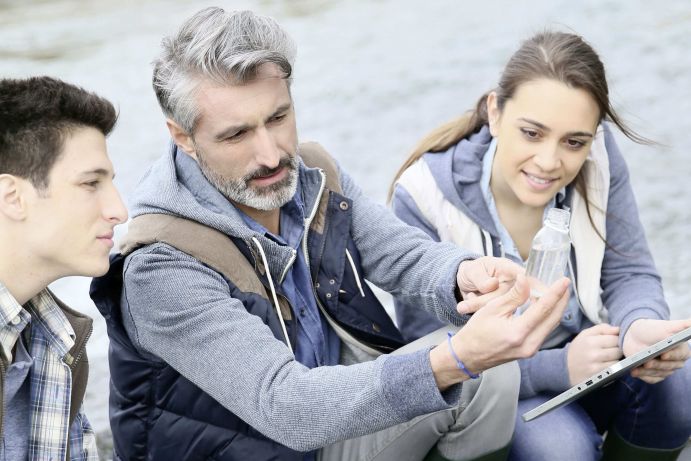Call: Plastics in the environment
Plastics in the environment are a global problem. Despite a range of activities, many questions regarding the distribution pathways of plastics into the environment as well as their impact remain unanswered. Within the framework of its flagship Initiative Green Economy, the BMBF is funding research that adopts a holistic approach to filling these knowledge gaps.
The extent and seriousness of the problem are all too evident: the considerable accumulation of rubbish in the oceans, plastics can even be found in much of the Arctic, not one species of fish tested in the North Sea was found without plastic particles in their stomachs, more and more sea birds are consuming plastic, and plastic debris in all shapes and sizes can be found on every stretch of coastline.
Despite these observations, the fundamental questions have not been answered satisfactorily, for example:
- What is the extent of the problem? How much plastic can be found, and where?
- What are the main sources of the problem? Which are the major entry pathways of plastics into the environment and what causes them?
- What impact does the introduction of plastics have on the environment? How harmful are plastics to living organisms?
With this call, the German Federal Ministry of Education and Research (BMBF) aims to develop and establish scientific processes, methods, instruments, and concepts for examining plastic in the environment in order to:
- develop a consistent view of the overall problem and lay a basis for international action,
- identify, develop, and implement possible solutions together with players from the fields of politics, business, and civil society,
- found cooperative projects with international partners from important countries of production and consumption, to reduce the amount of plastic that is released into the environment.
This call is part of the flagship initiative Green Economy, within the BMBF-framework programme “Research for Sustainable Development” (FONA³), and expands on work conducted in previous funding measures, e.g.:
- the international funding programme investigating microplastics in the oceans (part of JPI OCEANS),
- the ongoing joint project Microplastics in the Water Cycle-MiWa (part of the funding priority Sustainable Water Management),
- as well as the Social-ecological Junior Research Group working in this area.
The FONA3 flagship initiatives aim to promote a systemic view of sustainability issues, so that they may be addressed as effectively as possible. This approach will be demonstrated using the subject “Plastics in the Environment”. To achieve the overarching objective, to noticeably reduce plastics in the environment, the projects must look at the various aspects of the plastic cycle:
- Analysis of the whole life-cycle from production, to consumption, to recycling and disposal,
- Documentation of the sources and pathways of plastic as well as its accumulation in the environment, including terrestrial, aquatic and marine ecosystems,
- Besides examining the ecological, health and technical aspects, economic and socio-cultural factors must be taken into account,
- Bearing in mind the global nature of the problem and the roles different regions of the world play within the life-cycle of plastic.
- Addressing issues of socio-political relevance, as well as governance and government: shaping political agenda, initiating entrepreneurial trade, finding the relevant links for wide-ranging impulses.




